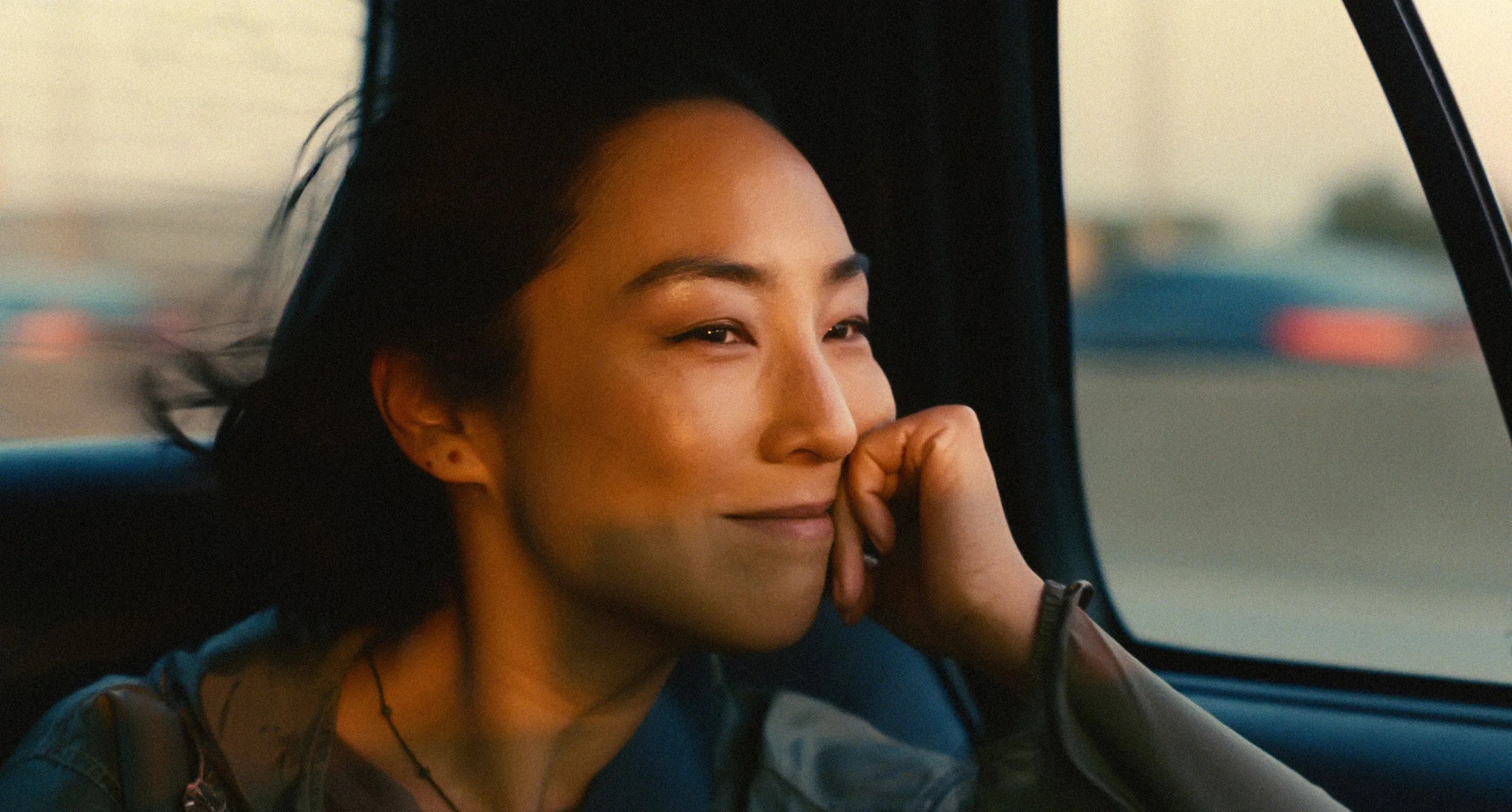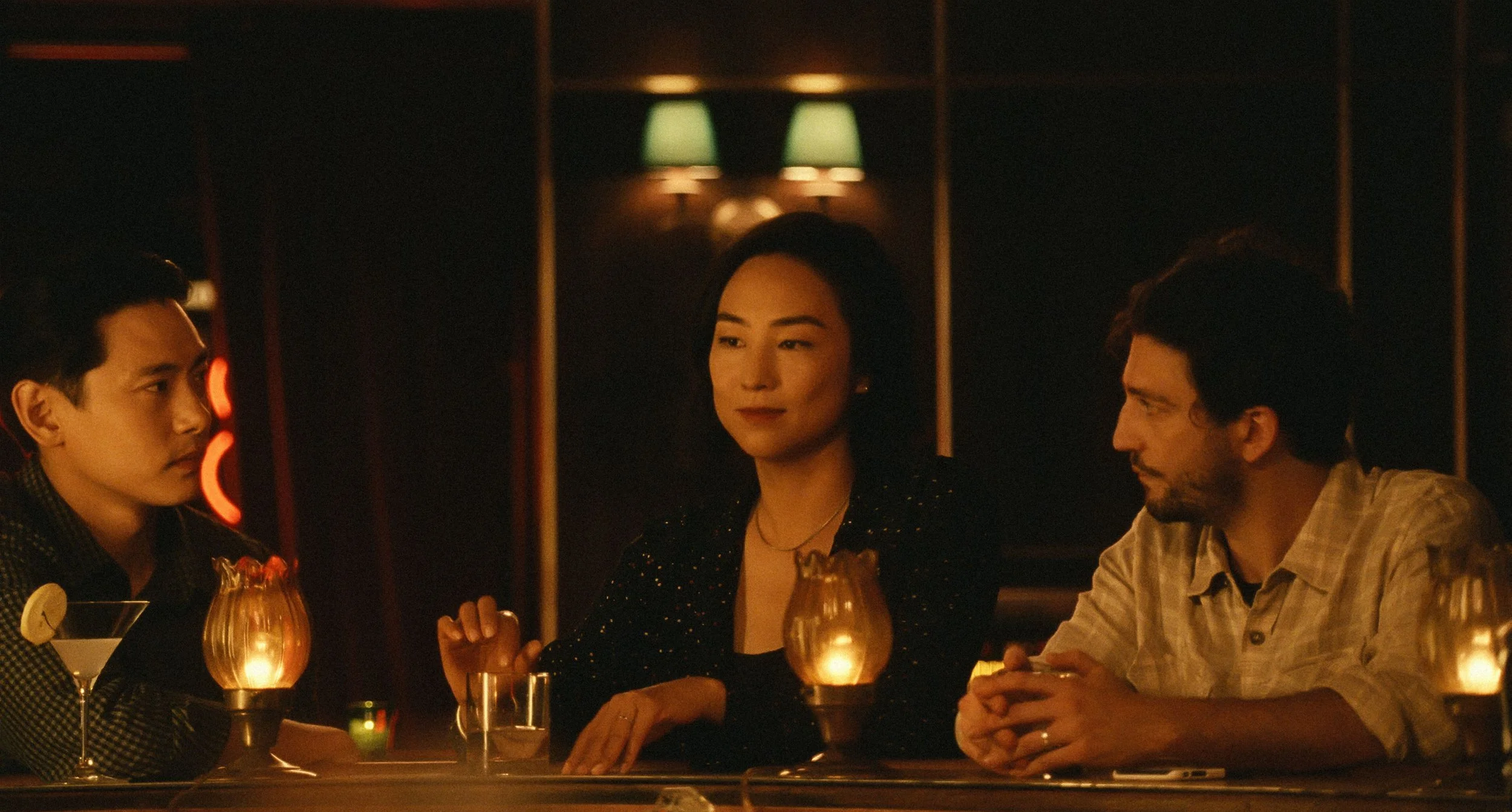Reminiscing About Past Lives
Past Lives is a remarkable directorial debut from Celine Song, who has a background as a playwright, the same work her protagonist Nora does in the film. The movie focuses on Nora, who left her childhood sweetheart behind at 12 when her family immigrated to Canada from South Korea, briefly reconnecting with that childhood sweetheart when she’s in her early 30s, married to an American writer, and living in New York. It’s inspired by her life, as she mentions in this Vanity Fair article, she was sitting in a bar in New York between her husband and Korean childhood sweetheart, and thought this feeling was worth exploring. She was right.
The opening third or so of the film sets the building blocks of her relationship with her childhood sweetheart. We see Hae Sung and Nora, then Na Young, as children with clear crushes on each other; Na Young tells her mom she’ll probably marry him when they grow up. Her mom arranges a playdate so they can make some good memories before they leave. When her mom is asked by his mom why they’d leave behind everything they have in their life in Korea, she responds that if you leave something behind, you can gain something too.
Celine’s history as a playwright undoubtedly came in handy when making this film, and explains how a debut film feels so thoughtfully polished. Already having a grasp on dialogue and storytelling, she makes the transition to a different visual medium seem easy and natural. It truly feels like it was made by a seasoned director, someone acutely aware of when to hold shots and when to cut away, and when two people just staring at each other says more than words ever could. It portrays well the distances between Hae Sung and Nora, from being close as children, to half the world in their twenties, and then just a few tantalizing inches.
Song has a keen sense of how to tell the story visually, while at the same time filling the film with beautiful imagery. When Nora first meets Arthur, the man who will become her husband, there’s just a few strands of lights strung overhead among low hanging tree branches. When she reconnects with Hae Sung in New York, there’s a larger plethora of those same bulbs shining brightly from a merry go round they sit near. It all feels intimate and carefully fragile, with a wonderful score by Christopher Bear and Daniel Rossen that perfectly evokes the required mood. It reminded me of Richard Linklater’s Before trilogy, which also examines how time affects two people as they live their lives, while they walk and talk through various cities and discuss the grander questions of life.
Though, to focus only on the romantic elements of the film would be reductive of the film as a whole. It quietly has grander ambitions. It’s fascinated in exploring the difference in American and Korean culture; Hae Sung still prefers to call Nora by her Korean name Na Young, and Nora admits to him that she only speaks in Korean to her mom and him. It depicts young Na Young and her sister trying to determine what they’d like their English names to be when moving, and how each of their cultures affect the way they live when Nora and Hae Sung reconnect. It has an astonishing amount of empathy for each of its characters.
There are three great performances that center this movie, Greta Lee as the protagonist Nora, Teo Yoo as Hae Sung, and John Magaro as Nora’s husband, Arthur. I really enjoyed watching Greta Lee as Nora, who is the most confident character in the film. Her resolve doesn’t waver, she doesn’t doubt herself, the movie admirably never allows itself to become a typical love triangle, and Greta Lee plays well to the internal strength of the character. Teo Yoo gives a tremendous performance as Hae Sung, revealing much while saying little, and gives perhaps the most heartbreaking performance in the film. Nora’s husband Arthur would’ve been a villain in a lesser film, and is instead warm and understanding in a way that feels deeply authentic. We understand his struggle in accepting and respecting the situation while also aching inside. There is some dialogue between Arthur and Nora where Arthur expresses wonderful vulnerability in a way rarely portrayed by men in movies.
This is a sad film, it is decidedly not tragic. Nora’s mom early on mentioned that you can gain something if you leave something else behind, and it is this idea the film explores the most. It’s about a woman standing firmly with everything she’s gained reminiscing in the nostalgia and possibility of what she left behind. Not just her relationship with Hae Sung, but her relationship with herself as little Na Young too. Everyone knows what it is like to wonder how differently things might have been, if you went to a different school, if you met different people, or made different choices, and we can only hope to be as resolute as Nora in accepting the paths we’ve chose as we live our lives. I suspect even those who don’t typically enjoy romantic dramas would find something to appreciate here as Nora thinks about the little Korean girl she was and what that girl wanted for her future, the parts of her she kept, and those she let go as time went on.

